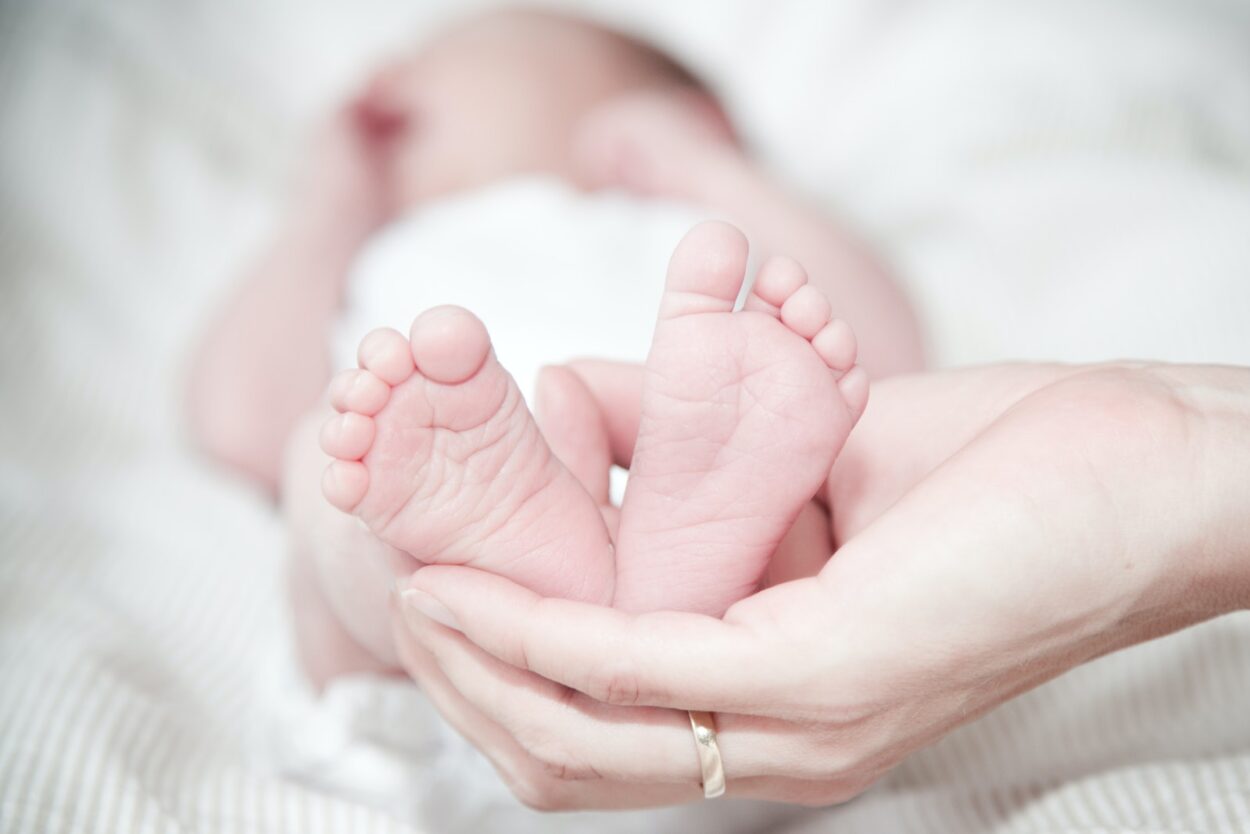Whether you had a vaginal or C-section birth, your physical body will need time to heal. It’s also important to remember that sex is not the only way to be intimate with your partner.
Sleep deprivation, hormonal changes and breastfeeding can make sex and intimacy feel like the last thing on your mind. This is totally normal.
Waiting period
For many mamas, resuming sex after baby can be difficult. There are a variety of reasons, including fatigue, sleep deprivation, decreased libido and hormonal changes. But even if you and your partner are eager to resume intimacy, it’s important to go slowly and carefully to avoid any complications.
For instance, your cervix may still be dilated after a C-section (or it could have been since you were pregnant). If your sex involves penetration while your cervix is still open, bacteria can enter the uterus and cause an infection, which is not fun at any time but especially after delivery. Bleeding is also common after sex, but it typically tapers off within 10 days. However, if you experience spotting that doesn’t stop or lochia that smells bad or feels painful, be sure to talk with your practitioner.
It’s also important to talk with your practitioner if you had a surgical cut or tear in the area from the vagina to the uterus (the perineum) or any stitches in that area. These can leave you vulnerable to infections, especially if you are breastfeeding. If you have any concerns, your practitioner can examine your healing area and advise you when it is safe to begin sex.
Emotional readiness
Women who have given birth report a range of experiences when it comes to sexual desire after pregnancy. Some have no problem, but others find that their interest in sex goes down as their hormone levels go back up. This is normal and part of the healing process.
It is also common for women to lose intimacy with their partners after childbirth. This is not a good thing, but it is something that can be addressed with communication and quality time.
For example, you and your partner can try taking a bath together or going out to dinner without the baby for some alone time. This will help you reconnect and can bring a new spark to your relationship.
Regardless of whether you had a vaginal or C-section birth, your physician should examine your body before you attempt to have sex again. He or she will check how your vaginal, perineal and abdominal tissues are healing. He or she may also recommend that you use a water-based lubricant to prevent dryness, especially if you are breastfeeding.
It is important to know that there’s always a risk of getting pregnant even if you’re not having sex and aren’t using birth control. This is true whether you’re having a vaginal or cesarean delivery, and it’s even more likely if you had an episiotomy or a tear during your labor.
Physical readiness
Whether you delivered vaginally or via c-section, your body has gone through a lot, and it needs time to heal. If you have sex too soon, you could damage the scar tissue in your abdomen and cause pain and bleeding. You’ll also need to wait until your cervix isn’t dilated. That means it’s not safe to have intercourse that involves penetration until you’re clear to do so from your caregiver.
You may not feel a sexual urge even after your doctor gives you the go-ahead. That’s normal and to be expected. Sex isn’t the only thing that changes after a baby’s born, and other things like lack of sleep or the new routine can have a negative impact on your libido.
If you’re breastfeeding, sex can be challenging, too. The hormone oxytocin causes milk let-down and can lower sexual desire. However, some women find that they experience sensual feelings while breastfeeding, due to the stimulation of their senses.
Whatever your plans are for sex after giving birth, you should always use backup contraception to prevent pregnancy. You’ll usually have a chance to discuss this with your GP or health visitor before you leave hospital, and again at one of your postnatal checkups. You should also ask about the type of contraception that’s suitable if you’re breastfeeding, as some types can’t be used with a dilated cervix.
Other considerations
Many new moms report that sex feels uncomfortable or even painful after giving birth. This is normal, and may be due to the hormones still being out of whack. Painful sex is also often the result of a vaginal tear or surgical cut (episiotomy) that requires healing. Women who had a cesarean delivery or who dilated before their due date are particularly at risk for this. A dilated cervix leaves the area vulnerable to infection, and bacteria from penetration or feminine products can travel directly into the uterus.
The good news is that a woman’s interest and desire for sex should return as she heals and the cervix closes. However, it is a good idea to get a medical professional’s clearance before proceeding with intercourse, especially during the first two weeks postpartum. This will help reduce the risk of complications, including postpartum hemorrhage and uterine infections.
If you had a c-section, perineal tear or episiotomy, it is likely that your caregiver will recommend waiting until after your six-week postpartum visit to have sex. This is so that they can be sure that the area is healed enough for you to proceed. This is a general guideline, and every woman is different. You might be ready for sex earlier than this, and that’s fine. The most important thing is to listen to your body and talk with your practitioner about what it feels like for you.




Leave a Comment